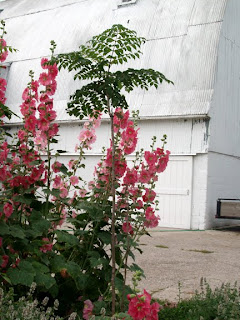Building Healthy Communities Grant Program
Home Depot is offering their second cycle of grants for the year through their Building Healthy Communities Grant Program. Grants, up to $2,500, are now available to registered 501(c)(3) nonprofit organizations, public schools or tax-exempt public service agencies in the U.S. who are using the power of volunteers to improve the physical health of their community. Grants are made in the form of The Home Depot gift cards for the purchase or tools or materials.
Only grants submitted through the online application process will be considered for funding. All unsolicited donation requests received via mail, phone or e-mail will be referred to this online grant program.
All applicants are required to pass an eligibility quiz before applying. Organizations that pass will be considered, but not guaranteed a grant. The Home Depot Foundation receives many worthwhile requests and can not accommodate all of them. Many times, requests that pass the eligibility test and fall within the stated guidelines are not funded.
Once grant applications are reviewed and approved, all applicants will be contacted within the timeframe set forth above. Please do not contact your local store or Customer Care to inquire about the status of your application. Should you have any questions about this grant program,
please e-mail.
Guidelines:
Only registered 501(c)(3) nonprofit organizations, tax-exempt public schools and tax-exempt public agencies in the U.S. are eligible to apply.
Grants are for community improvement projects that include activities such as construction or refurbishment of affordable or transitional housing, building, rebuilding, painting, refurbishing, increasing energy efficiency or sustainability, landscaping, planting of native trees, community facility improvements and the development and/or improvement of green spaces.
Grants must support work completed by community volunteers in the U.S.
Projects must be completed within six months following notification that the grant has been awarded.
Grants are solely given in the form of The Home Depot gift cards for the purchase of tools and materials.
Grants are not awarded for recurring funding. We invite grantees to re-apply in subsequent years based on program results, although there are no guarantees of receiving grants in subsequent years.
Organizations who have received a Building Healthy Communities grant must wait 12 months before applying for additional grants through this program. Each approved applicant must complete a Final Report before additional funding requests will be considered.
The Home Depot Foundation does not make grants through this program to support any of the following:
Organizations that are not registered 501(c)(3) charities, public schools or tax-exempt public service agencies
Scholarships or other direct support to individuals or families
Fraternal, political, labor, athletic or social organizations, civic clubs, candidates or projects
Religious organizations whose improvement project primarily serves their congregation and not the overall community
Sponsorship of events such as conferences, festivals, dinners, sports competitions, art exhibits, fundraisers(e.g. dinners, walks/runs/relays, golf tournaments and auctions)
Requests for our Kids Workshop kits and/or aprons
Capital campaigns, endowments or endowed chairs
Activities of organizations serving primarily their own membership
Institutional overhead and/or indirect costs
Film, music, television, video or media production projects or broadcast underwriting
Goodwill advertising or marketing
If you pass the eligibility quiz, you will be automatically directed to the Building Healthy Communities grant application. If you do not pass the eligibility quiz, your request does not fall within the guidelines for funding through the Building Healthy Communities grant program.
Click here to take the eligibility quiz





